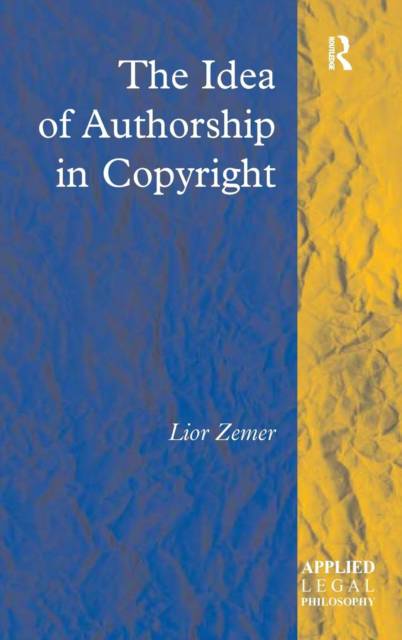
Je cadeautjes zeker op tijd in huis hebben voor de feestdagen? Kom langs in onze winkels en vind het perfecte geschenk!
- Afhalen na 1 uur in een winkel met voorraad
- Gratis thuislevering in België vanaf € 30
- Ruim aanbod met 7 miljoen producten
Je cadeautjes zeker op tijd in huis hebben voor de feestdagen? Kom langs in onze winkels en vind het perfecte geschenk!
- Afhalen na 1 uur in een winkel met voorraad
- Gratis thuislevering in België vanaf € 30
- Ruim aanbod met 7 miljoen producten
Zoeken
€ 305,45
+ 610 punten
Uitvoering
Omschrijving
As information flows become increasingly ubiquitous in our post digital environment, the challenges to traditional concepts of intellectual property and the practices deriving from them are immense. The romantic understanding of the lone author as an endless source of new creations has to face these challenges. In order to do so, this work presents a collectivist model of intellectual property rights. The core argument is that since copyright works enjoy profit from significant public contribution, they should not be privately owned, but considered to be a joint enterprise, made real by both the public and author. It is argued that every copyright work depends on and is reflective of the author's exposure to externalities such as language, culture and the various social events and processes that occur in the public domain, therefore copyright works should not be regarded as exclusive private property. The study takes its organizing principle from John Locke, defining and proving the fatal flaw inherent in debates on copyright: on the one hand the copyright community is eager to arm authors with a robust property right over their creation, while on the other this community totally ignores the fact that the exposure of the individual to externalities is what makes him or her capable of creating material that is copyrightable. Just as Locke was against the absolute authority of kings, the expressed view of the study is against the exclusive right an author can claim.
Specificaties
Betrokkenen
- Auteur(s):
- Uitgeverij:
Inhoud
- Aantal bladzijden:
- 288
- Taal:
- Engels
- Reeks:
Eigenschappen
- Productcode (EAN):
- 9780754623762
- Verschijningsdatum:
- 9/03/2007
- Uitvoering:
- Hardcover
- Formaat:
- Genaaid
- Afmetingen:
- 156 mm x 234 mm
- Gewicht:
- 576 g

Alleen bij Standaard Boekhandel
+ 610 punten op je klantenkaart van Standaard Boekhandel
Beoordelingen
We publiceren alleen reviews die voldoen aan de voorwaarden voor reviews. Bekijk onze voorwaarden voor reviews.









